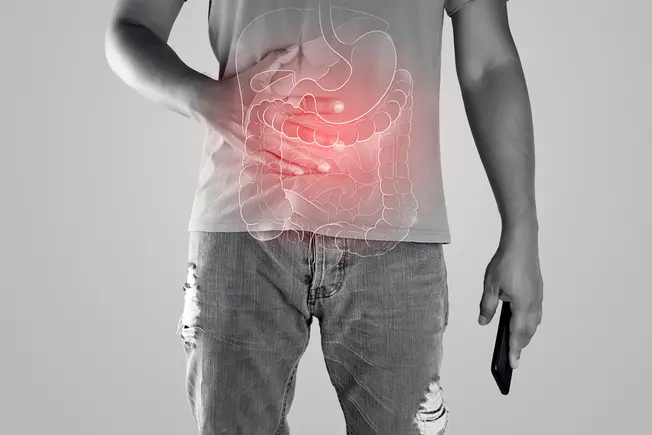- Overview
- Symptoms
- Causes & Risks
- Tests & Diagnosis
- Treatment
- Living With
- Complications
- Support & Resources
- Appointment Prep
- View Full Guide
When Crohn's Becomes Severe


Understanding Crohn's Disease
Crohn's disease is a chronic inflammatory condition affecting the digestive tract. It may cause symptoms like belly pain, diarrhea, weight loss, and fatigue.

Lifelong Disorder
Since it's a lifelong condition, there may be times when you don't notice any symptoms. Then there will be times when the disease flares up. That's when you have symptoms that range from mild to severe.

Symptom Changes
If your disease is getting worse, your symptoms may change, or new ones may appear. For example, you may have severe belly pain, chills with shaking, a fever, or a feeling like you are going to faint. See a doctor if you have new symptoms or your familiar symptoms get worse.

No Cure, but It's Manageable
There is no cure for Crohn's disease, but there are many treatments. The goal is to slow the inflammation that causes your symptoms and to work toward long-term remission. If your medicine stops working or you have new symptoms with your treatment, tell your doctor.

Potential Complications
Crohn's can lead to other serious issues. Hopefully, your treatment will keep your illness from getting worse, but sometimes these problems can happen: bowel obstruction, abscesses, ulcers, malnutrition, and other health problems.

Emotional Impact
Anxiousness and even depression are a natural response to a flare-up of Crohn's symptoms. Though you may be able to manage a few days of the blues, it's important to seek mental health counseling if you feel down or anxious for several weeks, or if your symptoms interfere with your daily life.
Photo Credits:
1) Emily frost/Shutterstock
2) pixs4u/Shutterstock
3) M.Fawaid.M/Shutterstock
4) PadungsakMK/Shutterstock
5) Shidlovski/Shutterstock
6) Kmpzzz/Shutterstock
Mayo Clinic: "Crohn's disease."
National Institute of Diabetes and Digestive and Kidney Diseases: "Symptoms & Causes of Crohn's Disease."
NorthShore University Health System: "Crohn's Disease."
Crohn's & Colitis Foundation: “Depression and Anxiety,” "What is Crohn's Disease?" "Types of Medications for Crohn's Disease and Ulcerative Colitis," "Intestinal Complications."